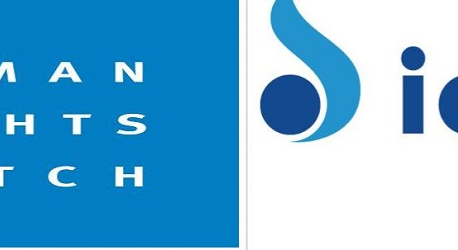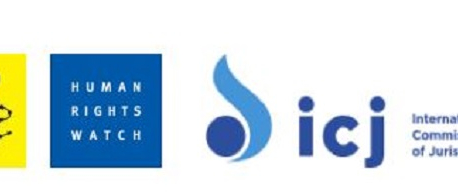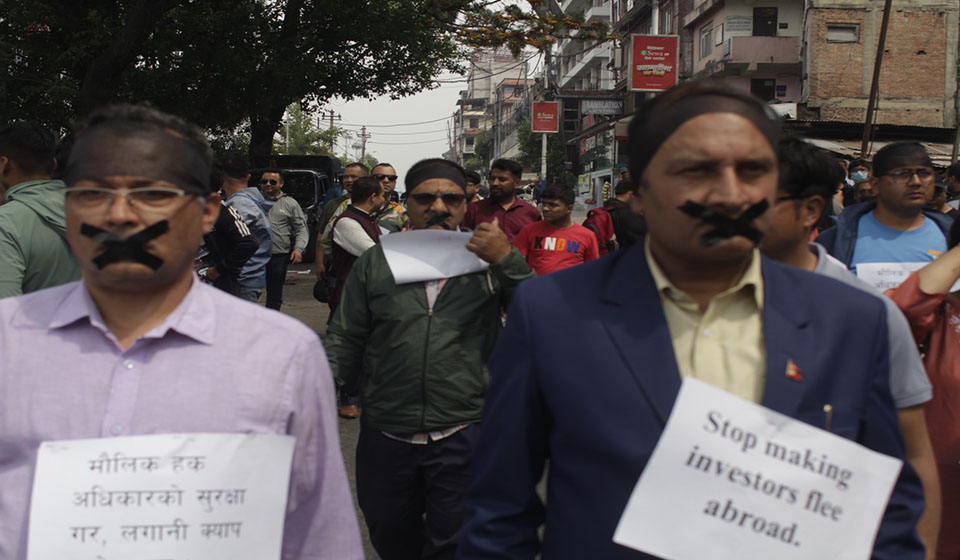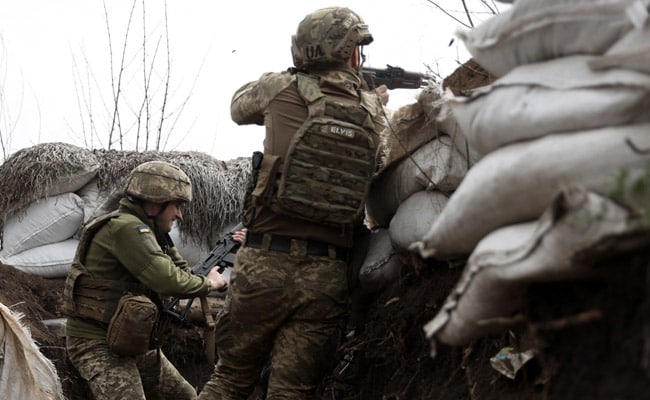
OR
ICJ urges Nepal to bring law and policy reform to achieve human rights accountability and strengthen justice sector institutions
Published On: August 7, 2020 06:35 PM NPT By: Republica | @RepublicaNepal
KATHMANDU, Aug 7: The International Commission of Jurists (ICJ) has urged Nepal to undertake substantial reforms in order to ensure that wide-ranging constitutional and political restructuring of recent years will allow the country to deliver on human rights accountability and access to justice for all Nepalis.
Publicizing the report of a High Level Mission to Nepal, the ICJ has offered more than 50 recommendations, including that the government authorities act to remove obstacles to access to justice for those seeking a remedy and reparation for human rights violations and abuses, both from the conflict era and contemporary times. The ICJ also calls upon the authorities to end political interference in the enforcement of the law and administration of justice, including in respect to directives from the courts and the National Human Rights Commission.
“In the face of the challenges of federal decentralization, it is vital that all Nepalis are able to trust in their fair and equal treatment under the law,” a press statement quoted the ICJ Commissioner and former Nepal Supreme Court Justice Kalyan Shrestha as saying. “This report is a guide to how that public trust can be strengthened in Nepal.”
The ICJ Mission that visited Nepal earlier found that despite strides in the development of human rights law, policy and jurisprudence, many long-standing obstacles to accountability and access to justice persisted and remained largely unaddressed.
“Nepal remains caught in a cycle of impunity that threatens to undermine the rule of law,as evidenced by a stalled transitional justice process, compromised justice sector institutions, afragmented civil society, and the persistence of systemic discrimination,” the statement quoted ICJ Commissioner Dame Silvia Cartwright as saying. “Despite notable efforts by provincial policymakers, a robust judiciary and the relentless advocacy of civil society, authorities representing the ‘new’ Nepal are in danger of repeating the mistakes of the past in failing to truly listen and respond to the demands of Nepalis for justice.”
The Report on Human Rights and the Rule of Law in a Federal Nepal considers the human rights impacts of recent changes in the political and legal context, such as the implementation of provisions of the 2015 Constitution that operationalize elements of a new federal system of governance, long-awaited amendments to the Penal Code and other laws affecting the criminal justice system, and a lack of progress in the transitional justice process, as well as the destabilizing effects of recent political developments and COVID19.
The Mission was undertaken by ICJ Commissioners Justice Sanji Monageng (Botswana), Dame Silvia Cartwright (New Zealand) and Justice Kalyan Shrestha (Nepal), as well as ICJ Legal and Policy Director Ian Seiderman and ICJ Asia-Pacific Director Frederick Rawski.
The Report that was built on a 2017 ICJ baseline study offers findings in three main areas, namely non-Implementation, independent and impartial institutions and accountability and access to justice. “Safeguarding the independence of the judiciary was a central theme of the Mission. The Mission found that the Supreme Court continues to effectively carry out its responsibilities under Nepal’s constitution and international law to protect human rights,” said the press statement.
However, it also concluded that persistent non-implementation of judicial decisions constituted a serious abdication of responsibility on the part of the executive authorities. “The Mission was impressed by the role that the judiciary, and particularly the Supreme Court, has played in protecting human rights,” said ICJ Commissioner Justice Sanji Monageng. “However, we repeatedly heard concerns that officials routinely ignore judicial decisions - to such a degree that non-implementation threatens to diminish the credibility of the judiciary in the eyes of the public.”
Drawing on these findings and observations, the report offers extensive recommendations directed to the Office of the Prime Minister, federal and provincial legislatures, the Nepal Police, the Office of the Attorney General, the judiciary including the Supreme Court and National Judicial Academy, the National Human Rights Commission, civil society and the diplomatic community.
You May Like This

HR groups urge govt to implement NHRC’s recommendation on human rights violators
KATHMANDU, Nov 3: The Nepal government should act without delay to carry out the National Human Rights Commission’s recommendations, particularly... Read More...

Recent govt steps undermine transitional justice in Nepal, say int'l human rights watchdogs
KATHMANDU, Jan 25: Four international human rights organizations International Commission of Jurists (ICJ), Amnesty International, Human Rights Watch and TRIAL... Read More...

US withdraws from two international accords, says UN World Court ‘politicized’
WASHINGTON, Oct 5: The Trump administration pulled out of two international agreements after Iran and the Palestinians complained to the International... Read More...


Just In
- 1,600 participants confirmed for Nepal Investment Summit
- Ilam-2 by-elections held peacefully, vote count likely to start tonight
- NEA schedules five-day power cut across Kathmandu Valley for underground cable installation
- Hundreds of passengers including foreign tourists in distress as poor visibility halts flights to and from PRIA
- Nepal clinches thrilling victory over West Indies 'A' in T20 cricket match
- Capital Market Struggle Committee stages protest demanding protection of domestic investors (Photo Feature)
- Captain Paudel scores half-century in T20 match against West Indies 'A'
- Nine youths from Tanahu allegedly joining Russian army out of family contact for months











-1200x560-wm_20240427144118.jpg)



Leave A Comment